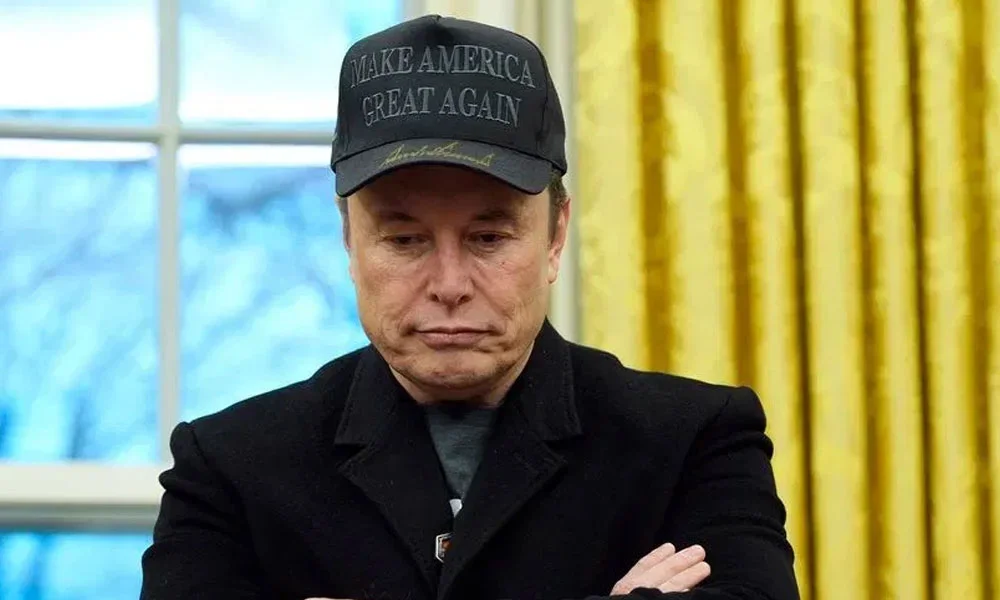Elon Musk’s ambitious venture into government reform—through the Department of Government Efficiency (DOGE)—has taken a dramatic hit, and it’s sparking serious questions. Musk, known for his bold promises, set out to slash a staggering £1.56 trillion ($2 trillion) from U.S. federal spending, aiming to reshape the way the government operates. But as of April 2025, DOGE’s results are anything but impressive.
Instead of meeting his lofty goal, Musk’s initiative has saved only £117 billion ($150 billion) for the fiscal year 2026—just 7.5% of what he promised. While Musk initially aimed to cut waste, fraud, and inefficiency from federal spending, the numbers simply don’t add up.
The Cracks in the Plan
From the start, Musk painted DOGE as a revolutionary effort to reduce the U.S. deficit by targeting inefficiencies and government bloating. But the reality is much messier. According to The New York Times, DOGE’s official tracking site, the “Wall of Receipts,” was last updated on April 15, 2025, and now shows £117 billion ($150 billion) in savings. But critics quickly pointed out inflated and questionable figures, including claims of saving money by canceling a non-existent contract.
Experts like Romina Boccia from the Cato Institute have called out these overstated claims. “They’re spinning their wheels,” Boccia said. “A lot of the savings are recycled from previous investigations or just made up.” Even Musk’s shocking findings, like £297 million ($397 million) in unemployment benefits allegedly going to toddlers and centenarians, were largely recycled from past investigations under the Biden administration.
Read Also: Elon Musk Loses a Billion Dollars Every Time the Tesla Stock Drops by $2.43
And it’s not just inflated numbers. Musk’s cuts, like the ones to the IRS, could end up costing the U.S. billions in lost tax revenue, ultimately undoing any savings. Yahoo News reports that the IRS cuts alone could lead to a £390 billion ($521 billion) annual loss in tax revenue, raising serious concerns about the sustainability of DOGE’s goals.
What’s Really Driving DOGE?
So why is Musk pushing forward with this plan? Some critics believe the answer isn’t just about cutting costs—it’s about power and profit. Musk’s actions, including eliminating 200,000 federal jobs and targeting agencies like NASA, suggest that there could be a bigger agenda at play.
Musk’s push for slashing regulations, like the ones governing NASA, has raised eyebrows. Reuters reported that the government slashes could potentially benefit Musk’s companies, like SpaceX, which already secured £11.7 billion ($15 billion) in rocket contracts for 2024. Could DOGE be Musk’s way of clearing the path for even more lucrative deals?
And then there’s Musk’s proposal for a “DOGE Dividend”—tax rebates from supposed savings—which experts note is a long shot. Congress must approve these rebates, and they exclude low-income earners, further raising suspicions about the true intentions behind DOGE.
The End of DOGE?
With reports indicating that Musk is “tiring of leftist attacks” and may exit DOGE as early as 2026, the initiative seems to be unraveling. Rolling Stone recently reported that even Trump’s allies are beginning to view Musk’s antics with increasing irritation, while CNBC suggests that Musk’s focus should return to Tesla, as the company’s stock has plummeted by 37% in 2025.
As DOGE faces growing scrutiny, Musk’s once-optimistic project is now running into harsh reality. With the project set to expire on July 4, 2026, there’s no telling what its legacy will be. Will it be remembered as a failed experiment in government reform? Or will it go down as a clever maneuver in Musk’s long game for power and influence?
For now, all eyes are on Washington, where Congress is poised to investigate the impacts of DOGE in May 2025. Musk’s favorability ratings, now sitting at -13.8%, show that public trust in the project is rapidly eroding.
While Musk insists that DOGE’s work will continue, it’s becoming increasingly clear that the numbers aren’t adding up. Is Musk dismantling government inefficiency for the greater good? Or is this just another step in his complex, profit-driven agenda? Only time will tell.

